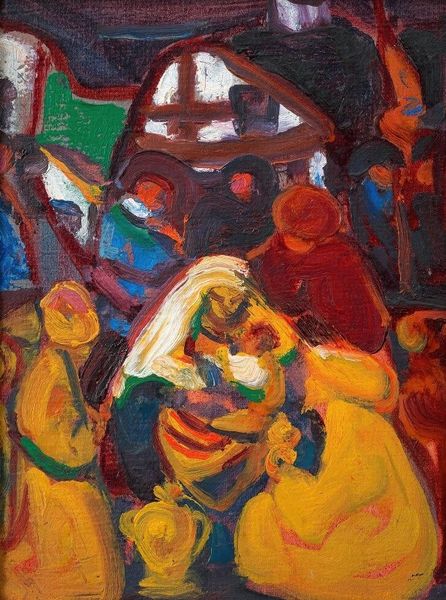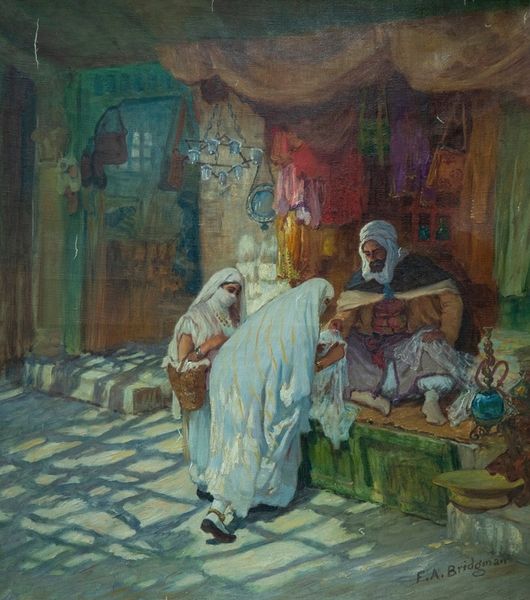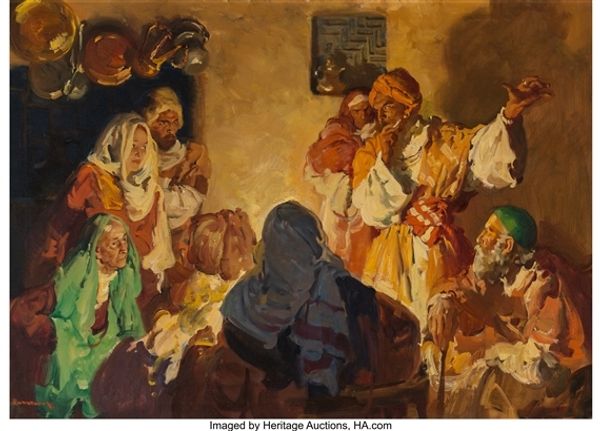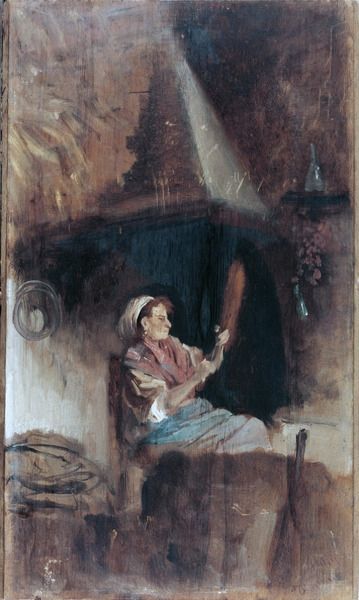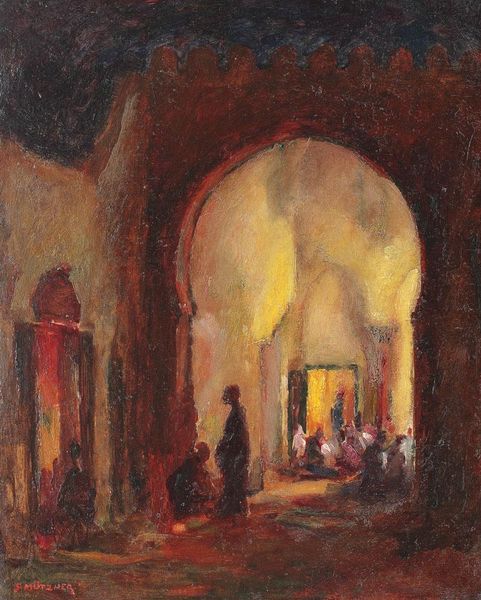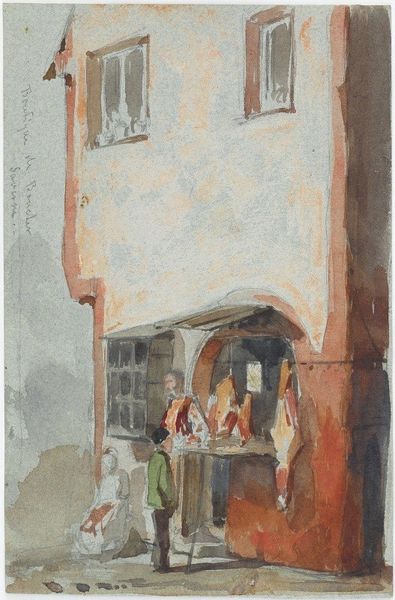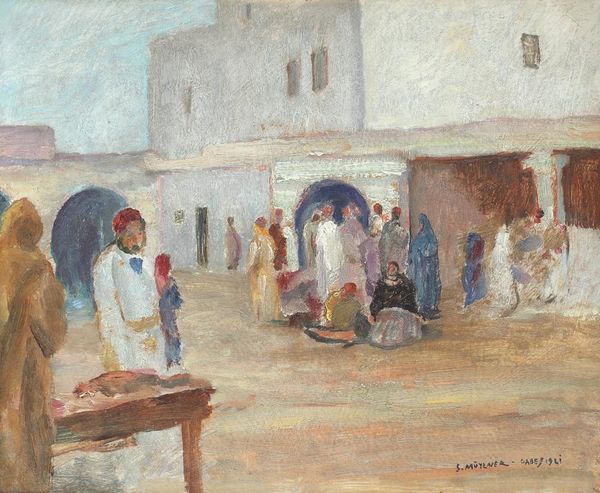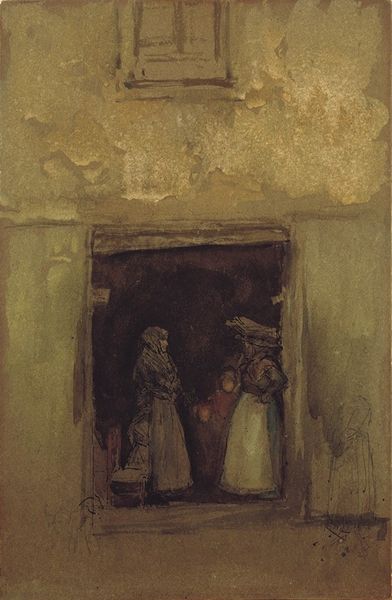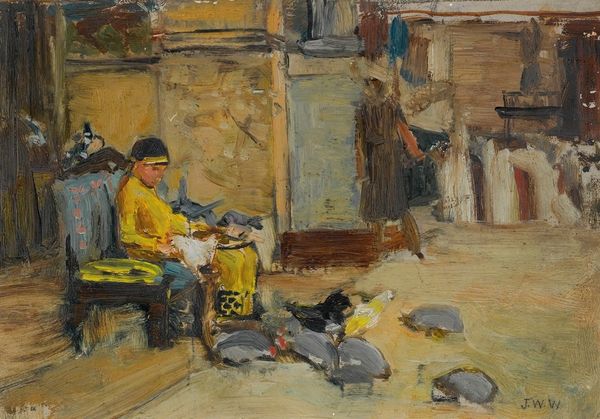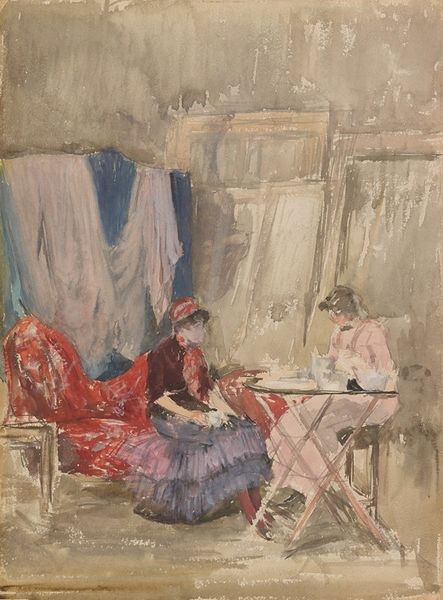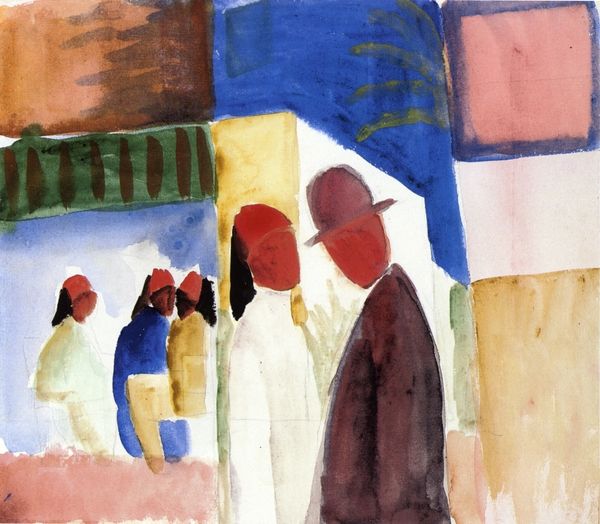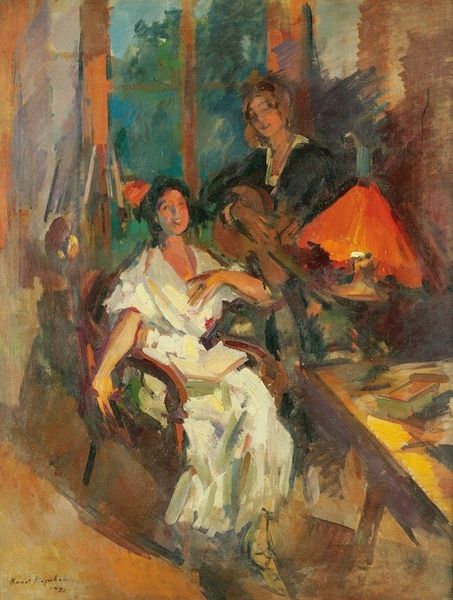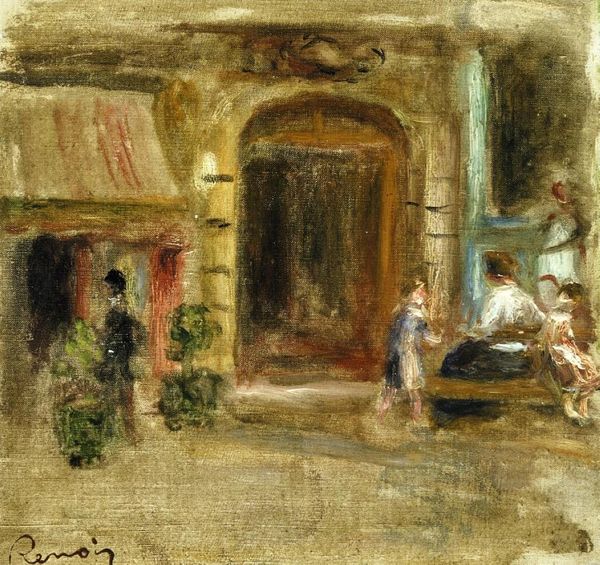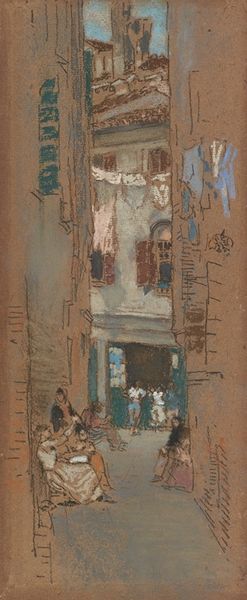
painting, oil-paint
#
painting
#
oil-paint
#
landscape
#
oil painting
#
group-portraits
#
orientalism
Copyright: Public domain US
Curator: My initial impression is one of quiet contemplation. The red hues wash over everything, creating a feeling of being submerged in a dream. It’s interesting that Samuel Mutzner created this painting, entitled "Cafe in Gabes," in 1921, using oil on canvas. The cafe setting itself becomes a vessel for inward reflection. Editor: Mutzner's depiction is so evocative! We can't ignore the historical lens here—"orientalism" was, unfortunately, a prevalent trope when western artists portrayed the Middle East and North Africa, particularly in the early 20th century. How do you think Mutzner navigated this perspective? Curator: I think he sought authenticity through careful observation. The brushstrokes are loose, almost impressionistic, but the faces feel so distinctly rendered, conveying the feeling that one gains while really visiting a place. You notice all the distinct faces when visiting a foreign space. Editor: But doesn't that careful observation run the risk of aestheticizing otherness? This depiction of leisure seems devoid of the social, political, and economic contexts of the era. Doesn't this become a somewhat flattened narrative, almost like a postcard? Curator: That’s fair. There is definitely a curated feel, a removal from harsh realities, though there seems a deliberate rendering of details of dress and setting—all filtered through his own artistic sensibilities, obviously. Maybe, that feeling is what is beautiful and romantic about it. He focused on what made him curious. Editor: It prompts reflection on who has the privilege to look, and what that gaze entails. We're now in a space that calls for accountability within art history, confronting the historical power dynamics inherent in such images and questioning what isn't visible in them. Curator: Indeed. And maybe Mutzner, unintentionally, offers us precisely that—a visual document ripe for such questioning, reminding us that even the most beautiful mirages were once reflections of a very real world. It's a reminder that no artist can ever capture a place perfectly. It's not a photo—but rather, an invitation.
Comments
No comments
Be the first to comment and join the conversation on the ultimate creative platform.
